
The respiratory system in goats is very similar to that of other animals. Problems can develop in the nasal chambers and sinuses, the larynx, trachea and bronchi carrying air in and out of the lungs and the pleura covering the lung and chest wall surfaces.
For the goat owner however the signs to look out for are coughing (either a sudden onset or a chronic cough that lingers), a nasal discharge and an increased respiratory rate. These signs may also be accompanied by a rise in temperature, and reluctance to feed. The normal respiratory rate in an adult goat is around 15 - 30 breaths/minute and around 20 - 40 breaths/minute in kids. By standing and observing your goats at rest you can get a good "feel" for what is their "normal" breathing behaviour, and hence recognise when this behaviour changes. As respiratory distress becomes more serious, you may see your goat move its elbows away from its chest and extend its head and neck forwards - in an attempt to increase air flow to the lungs - this is an indication that veterinary attention should be sought urgently. The normal nasal discharge in a goat is clear and minimal in amount.
Although these signs will generally indicate problems with the respiratory tract, a diagnosis and hence the correct treatment may need further investigation by your vet. The most useful test involves the use of a stethoscope over the lung field and trachea to more accurately decide whether your goat has pneumonia, pleurisy or bronchitis and to gauge its severity, possible cause and suitable treatment. Other approaches your vet may adopt include ultrasound examination, X rays, blood tests and examination of faeces for evidence of lungworm.
PROBLEMS IN MATURE GOATS:
この記事は The Country Smallholder の February 2023 版に掲載されています。
7 日間の Magzter GOLD 無料トライアルを開始して、何千もの厳選されたプレミアム ストーリー、9,000 以上の雑誌や新聞にアクセスしてください。
すでに購読者です ? サインイン
この記事は The Country Smallholder の February 2023 版に掲載されています。
7 日間の Magzter GOLD 無料トライアルを開始して、何千もの厳選されたプレミアム ストーリー、9,000 以上の雑誌や新聞にアクセスしてください。
すでに購読者です? サインイン
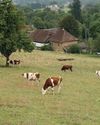
How to Buy a Smallholding in France- Long-time smallholder Lorraine Turnbull looks at the practicalities of moving to rural France
Aspiring smallholders are continually thwarted by the prices of smallholdings and property with land located within the UK. Even the humblest croft in Scotland comes with a substantial price tag and conditions which would make even an adventurous wannabee consider carefully. But all is not lost. For those willing to take the adventure of a lifetime, there is always Europe, and one of the most popular places is France.

Meet the Bournemouth goats and their supporters
These capricious animals are hard workers preserving the natural habitat

Still warm enough to sit outside with a Pizza
Henrietta Balcon uses fresh figs to create an unusual dish at Harvest time
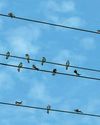
Goodbye to the birds of spring and summer
If you look and listen you might be able to see them preparing to leave says The RSPB

Get ready for the colder weather in the warmth of late summer
Claire Waring advises on doing the best to make sure your colonies survive until next spring

Preparing the Veg Patch for Winter
Lee Senior says, a well-run plot can excitingly continue to produce good quality, tasty, fresh food for much of winter
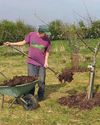
Time to prepare to plant your orchard
Wade Muggleton, smallholder and author of The Orchard Book, shares his practical experience so you can create your own fruit collection
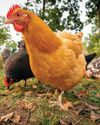
Choosing feed for the autumn
As autumn approaches, Joanna Palmer, nutritionist at the Smallholder Range, offers advice on choosing the right feed to support your adult birds through their annual moult and ensure your young birds grow and finish well at this time of the year.
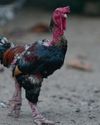
Vet advice from an experienced poultry vet
Reflecting on how much the humble hen has helped people world wide plus advice on stopping the scourge of red mite
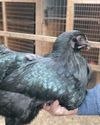
Give your hens some support
Paul Donovan looks at the right and wrong ways of handling birds